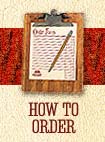VIOLIN, SING THE BLUES FOR ME
African-American Fiddlers 1926-1949
Old Hat CD-1002
Old Hat Unearths Vintage Black Violin Music on “Sing The Blues”
by Chris Morris / Billboard / June 19, 1999
Fresh from our annual trip to Memphis, the seat of Southern blues, we returned to the office to find a choice new collection of delightful vintage music rescued from the mists of time by a resourceful indie label.
Violin, Sing The Blues For Me, African-American Fiddlers 1926-1949, due Tuesday (15), is the handiwork of Old Hat Enterprises (wonderful name!), a Raleigh, NC-based imprint operated by collector Marshall Wyatt. It’s one of those revelatory, lovingly produced compilations that makes one ask, “Why didn’t someone think of this before?” and then exclaim. “Damn, This is great stuff!”
“I get a lot of reissues that come out, and there’d never been an album that focused specifically on black fiddle music,” says Wyatt, who previously released Music From The Lost Provinces, a set of North Carolina hillbilly string band music.
Drawn from Wyatt’s own collection and those of such 78 hounds as Joe Bussard, Pete Whelan, and Richard Nevins, the Old Hat album takes a deep look at the role of the violin in the blues, growing out of 19th-century string-band traditions. Here, one listens to a panoply of antique black fiddle styles, from straight blues to waltzes and ballads.
Some well-known names in blues history are here: Lonnie Johnson, better known as a guitarist but a formidable fiddler as well, whose exclamatory aside on “Violin Blues” lends the album its title; Big Joe Williams, whose classic “Baby, Please Don’t Go,” with one-string violin accompaniment by “Dad” Tracy, is included here; and such noted string bands as the Memphis Jug Band and the Mississippi Sheiks.
One also encounters such lesser-known figures as Will Batts, “Blue Coat” Tom Nelson, and Henry “Son” Sims (who famously recorded with both Charlie Patton, heard here, and young Muddy Waters). The wonderful Howard “Louie Bluie” Armstrong, who survives today as one of the only bluesmen schooled in pre-blues styles, can be heard stroking the gut on a couple of cuts recorded nearly 70 years ago.
Superbly transferred by audio magician Jack Towers, the music on Violin Sing The Blues For Me is clean and vital. The accompanying 32-page booklet, with detailed notes by Wyatt and some handsome, rare illustrations, is a model of informative scholarship. In short, this is a well-nigh-essential collection that will reward both blues historians and neophytes. We rate it with the best recent work from such reissue leaders as Yazoo and Revenant.
|















